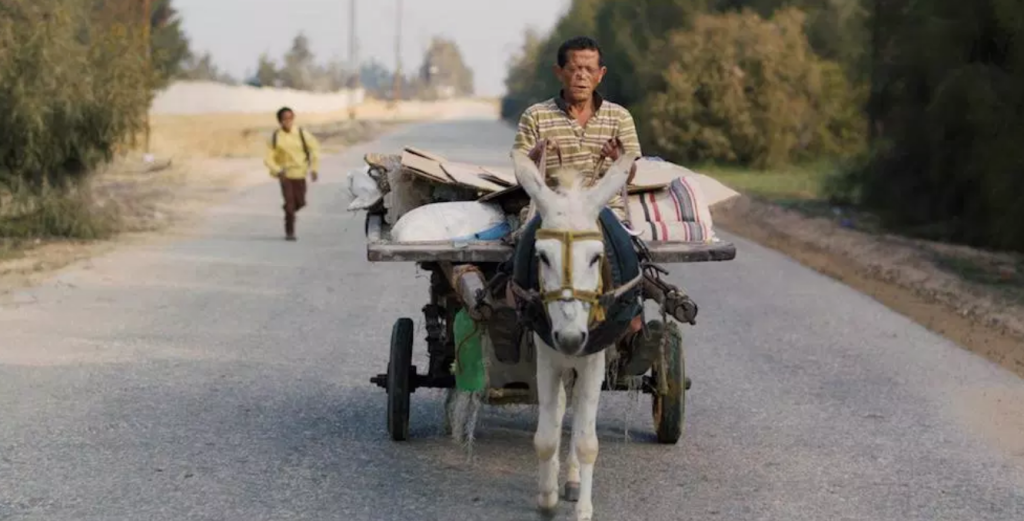Yomeddine is an Egyptian film that we, Egyptians, only heard of when it was selected to take place in the official competition of the 71st edition of Cannes film festival. This is extremely weird when we take into consideration that the production agenda in Egypt only has around 45 films this year, and we knew everything about each one of them weeks before its release. But then, why would we possibly know about it? The director is an unknown, it doesn’t feature any stars in its cast, and it’s not a hilarious comedy or a heart pounding action thriller. If it wasn’t for Cannes, we might’ve never heard of this film .. What a risk!

Two Best Friends and a Road Trip
In his long feature directorial debut, Abou Bakr Shawki, chooses to tell the story of Beshay, a recovered leper who never stepped foot outside the leper colony but decided travel a long distance to find his family after his wife’s death. Beshay is joined by Obama, his young orphan friend and they embark on a road trip filled with adventure, laughs and tears.
The film stars Radi Gamal, a recovered leper in real life and a resident of the leper colony. Of course he’s not a professional actor, neither is Ahmed Abdel Hafez who plays Obama. This adds to the overall risky approach that Shawki followed in making his film which also guarantees him full control by taking more and more strings in his own hands. No big star to dictate his own vision, no hours of daily makeup, and no complications in sets and decoration since the film is mostly shot in real locations and mostly outside. I would say this is an understandable approach for a director with an enthusiastic vision and a large amount of energy to see it through.
The vision is not about people with sickness, poor people or illiterate people, it’s rather about discarded people. The ones we don’t see even though they’re in plain sight all the time. The ones that suffer from everything and struggle with anything. The ones that find peace in believing that they’ll have justice on judgement day, which happens to be the title of the film in Arabic.
Like any other road trip film, our story flows through acts consisting of the places our heroes travel to, the people they encounter and the misfortune, and rarely fortune, that they come across. Our acts are very well paced, with just about the right dosage of pain and humour to balance it. Shawki, who also wrote the screenplay, doesn’t seem to be overly interested in providing a poverty fest. He appears to be aware of when his audience will be about to feel much of anything, and he always has the right solution. A ray of hope always appeared when a lot goes wrong. A splash of kindness always emerged when cruelty becomes too frequent. I was kept engaged and interested through the entirety of the film.
The cast, while inexperienced as actor, are of course experts in playing their characters. This added a unique layer of realism that is not necessarily always effective. The characterization of Beshay is of course unparalleled, not only in the understanding of the character’s struggles but also in the basic tools of portrayal like speech delivery. However, timings are not always perfect and reactions are sometimes lacking.
Beshay’s journey is not by any means more interesting than the journey of Yomeddine from being an unknown film to Egyptian viewers to becoming the most important film of the year, and the official representative of Egypt in the race for the Best Foreign Language Film race at the Academy Awards. It is indeed a huge risk but it delivered a beautiful film and a unique experience for us as viewers as I’m sure it was for the makers of the film.

